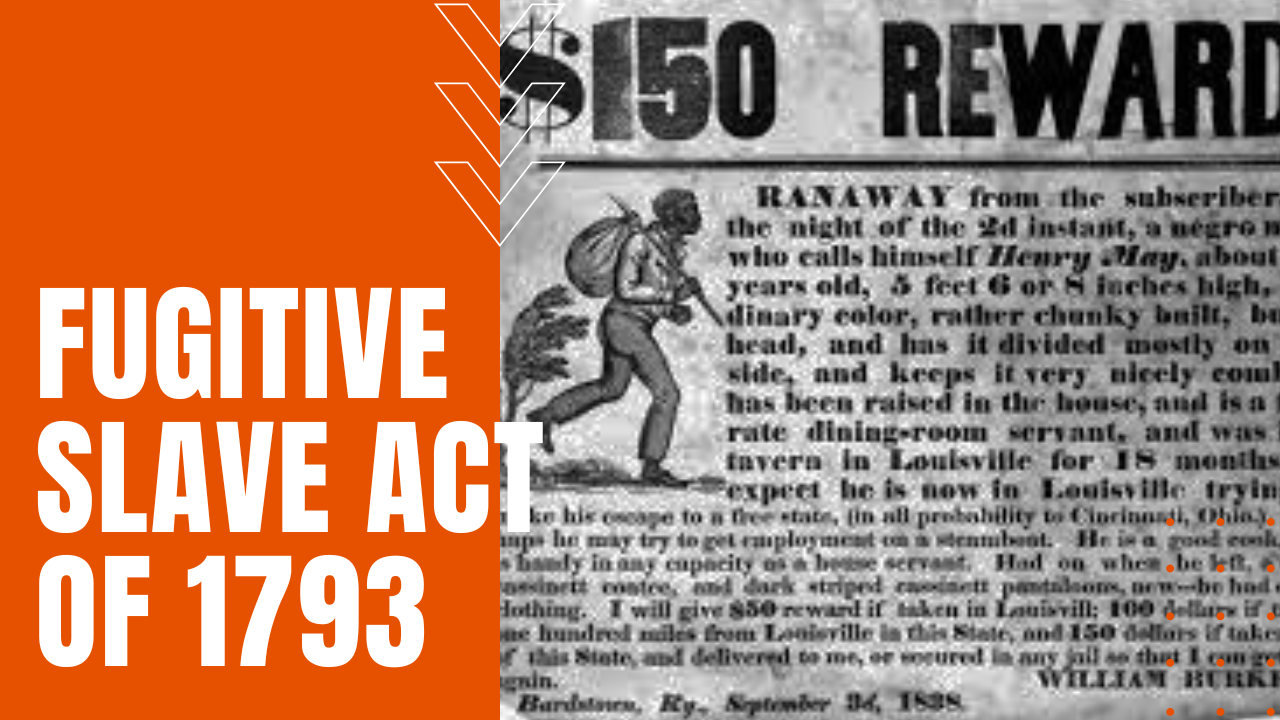Fugitive Slave Act of 1793

Beginning as early as 1643, fugitive slave laws began dotting colonial law books, including a 1705 law in New York designed to prevent runaway slaves from escaping to freedom in Canada, while Maryland and Virginia passed laws that offered bounties for the capture and safe return of runaway slaves.
A Divided Nation
Yet by the start of the Constitutional Convention of 1787, most Northern states had abolished slavery entirely, obliging Southern politicians attending the convention to insist on a “Fugitive Slave Clause” to the U.S. Constitution, under the fear that free states would become a constitutional safe haven for runaway slaves.
Rising Abolitionist Sentiment
As abolitionist sentiment continued to rise in Northern states throughout the late 1780s and early 1790s, many Northern anti-slavery activists began to petition Congress for an outright ban on slavery in North America, leading Southern legislators to demand passage of the Fugitive Slave Act of 1793. While much of the Fugitive Slave Clause to the Constitution could be found in the new fugitive slave act, the later document decreed that slave owners or their “agents” had the right to search for their missing human property within free states, while imposing a $500 penalty on any person caught harboring or concealing a runaway slave.
Immediate Pushback
After its passage, The Fugitive Slave Act of 1793 received immediate pushback from Northern anti-slavery factions, insisting that the act turned free states into legalized stalking grounds for bounty hunters, at the same time exposing legally freed Blacks to the possibility of being kidnapped and forced into slavery against their new rights as free men.
Underground Railroad
In response, anti-slavery supporters organized clandestine resistance groups and built networks of safe houses that evolved into the Underground Railroad, while most Northern lawmakers intentionally refused to enforce the decrees of the Fugitive Slave Act of 1793. Several states even went so far as to pass “Personal Liberty Laws,” which gave accused runaway slaves the right to a jury trial, making The Fugitive Slave Act of 1793, a temporary band aid on the escalating crisis of slavery in America.
